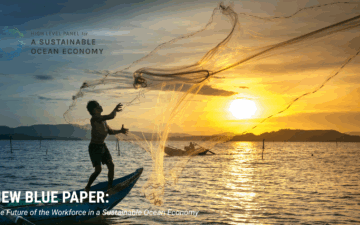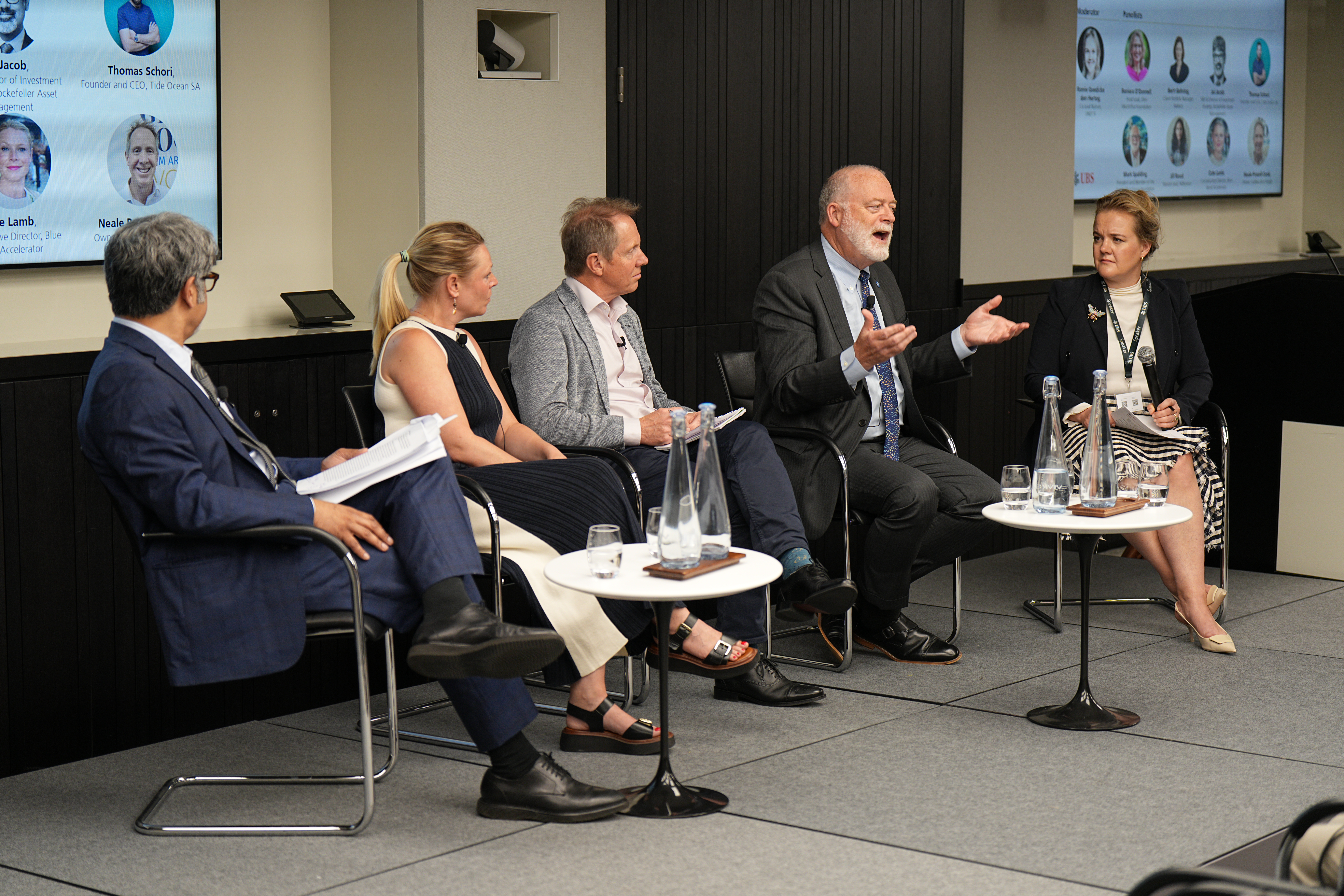By Robin Peach, Executive Director of the Collaborative Institute for Oceans, Climate and Security at the McCormack Graduate School at UMass Boston
This blog can be found on the Boston Globe’s Podium for the next month.
Many of the threats to our coastal communities from climate change are well-known. They range from personal danger and massive inconvenience (Superstorm Sandy) to perilous changes in global relations as some nations lose secure food sources and energy, and entire communities are displaced. Many of the responses needed to mitigate these challenges are also well known.
What is not known – and is crying out for an answer — is the question of how these needed responses will be mobilized: when? by whom? and, frighteningly, whether?
With the approach of World Oceans Day this coming Saturday, many countries are giving increased attention to these issues, but not nearly enough action. Oceans cover 70 % of the earth’s surface and are central to climate change – because the water both absorbs and later releases CO2, and also because more than half of the world’s people — and largest cities — are on the coasts. Secretary of the Navy Ray Mabus, speaking at the Global Conference for Oceans, Climate and Security at UMass Boston last year exclaimed, “Compared to a century ago, oceans are now warmer, higher, stormier, saltier, lower in oxygen and more acidic. Any one of these would be cause for concern. Collectively, they cry out for action.”
INSERT GLOBE IMAGE HERE
Reducing our global carbon footprint is crucial, and receives heavy attention. But climate change is certain to accelerate for several generations, at least. What else is urgently needed? Answers: (1) public/private investments to identify the most threatened communities and vulnerable ecosystems such as salt marshes, barrier beaches and floodplains, and (2) plans to make these areas resilient for the long-term.
Local officials and the public would like to be better prepared for climate change but they very often lack the funds for the essential science, data, policies and public engagement needed to take action. Protecting and restoring coastal habitats and preparing buildings and other infrastructure such as subway tunnels, power plants, and sewage treatment facilities for flooding are expensive. A model of public/private effectiveness and a mindset to seize opportunities and create bold new initiatives at the local level are both required.
INSERT DAMAGE AFTER SUPERSTORM SANDY IMAGE HERE
In recent months there has been some movement in the philanthropic world for global action. For instance, the Rockefeller Foundation recently announced a $100 million Resilient Cities Centennial Challenge to fund 100 cities, worldwide, to better prepare for climate change. And in Massachusetts we are making progress. Examples include the newly-designed climate-conscious Spaulding Rehabilitation Hospital and the state’s strengthened building codes for construction in floodplains and coastal dunes. But harnessing these significant resources to make sustained, adaptive progress over a long period of time is a critical aspect of climate preparedness that is often overlooked.
Champions are needed to pull together individual, business, and nonprofit support at the local level to help public officials and private stakeholders finance the long-term work.
INSERT ROCKEFELLER IMAGE HERE
One bold idea is to establish a network of endowed local resilience funds. Events happen at the local level, and it is there that understanding, preparations, communications, and financing best take place. Governments can’t do it alone; nor is it solely up to the private sector. Banks, insurance companies, private foundations, academia, and government officials should come together to do their part.
With reliable financial resources to capitalize on existing expertise and coordinate multiple efforts by different players, we will be better equipped to address what arguably is this century’s greatest challenge – planning for the inevitable effects of climate-induced change on our coastal communities and on human security.
Robbin Peach is Executive Director of the Collaborative Institute for Oceans, Climate and Security at the McCormack Graduate School at UMass Boston – one of Boston’s most climate-vulnerable sites.







